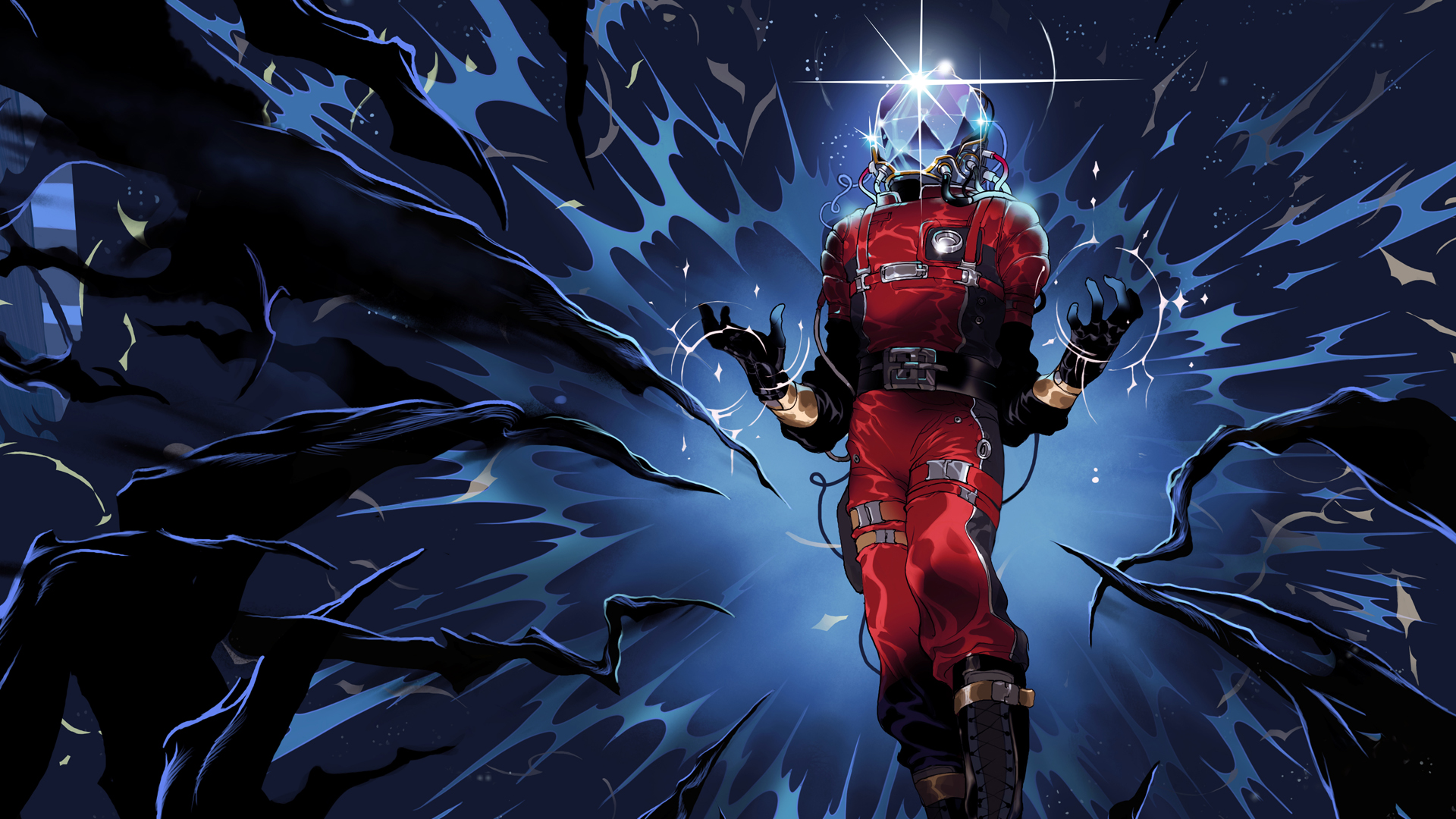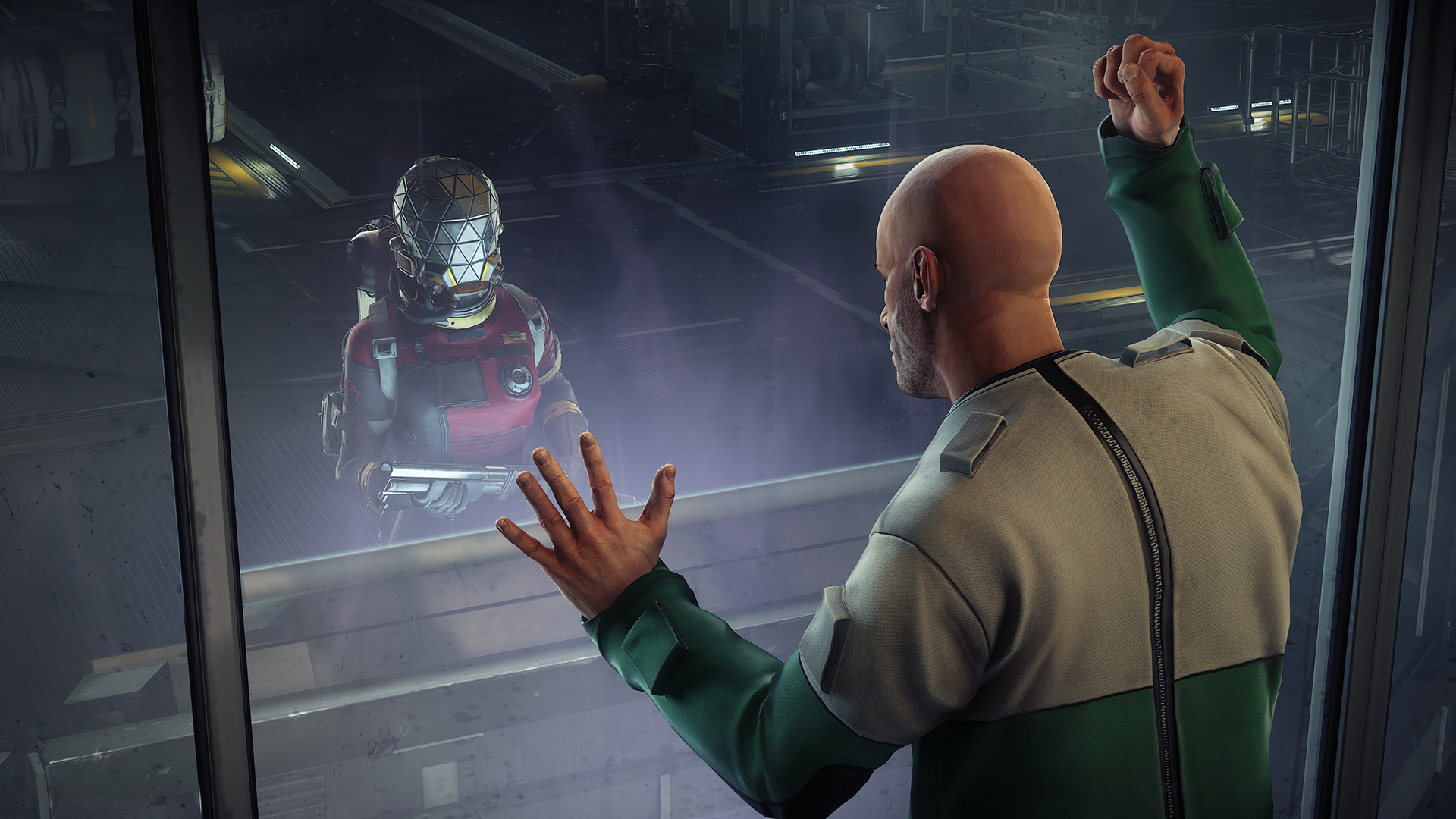Do yourself a favor. Play the Prey demo... or miss out on one of 2017's most promising games

Prey has a problem. Most people simply don’t know how much they want it. See, it’s a clever game; a slice of smart design and wonderful world building assigned to a series with no real heritage. To play is to believe, but you can’t necessarily be told what makes the game so brilliant. The fact that there’s a demo coming on April 27 will certainly help raise Prey’s profile, but you can already pencil it in as one of those titles that most won’t ‘get’ until they’re zipped into the lead character, Morgan Yu’s, space-suit, experiencing the full thing for themselves.
See, the new demo I played thrives on making the player feel smart, like they’ve figured out a way to cheat the system, or combined their powers in a way they maybe weren’t supposed to. Every inch gained feels like an achievement; a victory for resourcefulness rather than a quick trigger finger. I’m dropped into a mission about a third of the way through the game, and I’m simply tasked with making it to an area called GUTS. How I get there, I’m told, is up to me.
That’s not entirely true. While Prey offers choices, it’s a much more linear experience than its stable-mate Dishonored 2. This is a game of progression and corridors rather than full freedom in more open hub-worlds, and it’s what happens on the way from A to B that really counts. At least that’s what the three hours I’ve played suggests. Prey - perhaps more than any other title - demands that you apply the cumulative knowledge you’ve learned playing video games for years. The first proper puzzle in this demo sees me trying to climb up to a raised platform with no visible means of getting there and no real clues about how it’s done. Elevator? No. Can I jump up from a box? No. Instead I create a path up the wall using my GLOO Cannon, which fires sticky blobs that I can climb. It feels like I’m somehow breaking the rules, and I’m climbing out of the level or taking a sneaky shortcut. But that’s the way it’s actually done. Being resourceful in this artificial version of reality is very much Prey’s thing, and without hundreds of hours of prior knowledge gained from playing other games, you’ll struggle to progress.
In fact, if the whole experience feels guilty of anything at the moment it’s giving players too much free agency, too little direction. I load up on random items, gadgets that come with little explanation, and read emails that offer stacks of interesting yet worthless information. I say ‘worthless’ - it’s probably part of some puzzle that I’m not privy to, or clever enough to figure out. However, Prey’s flood of information makes it tough to discern the useful from the useless. The net result is this: I had to configure my special alien scanner to access the next area, but I had no idea how to trigger it. So I scanned everything, picked stuff up, and killed every enemy I could find. I read emails, listened to data logs, and… somehow the door opened. It’s a minor complaint in an otherwise well presented game, but it’s also part of Prey’s main problem - it simply doesn’t know how to explain itself that well.

Through to the next area and I meet one of Prey’s moral quandaries - another smart little encounter that suffers from a real lack of context or exposition. There’s a man trapped in a glass cage - he wants me to let him live, but I can choose to perform an experiment on him by releasing Mimics into his cage. Curiosity gets the better of me, and I unleash the alien nasties, who promptly murder him gruesomely. I press another button and the Mimics are burned up in a special box, which dispenses some rare crafting materials for me to pick up. Score! I then read an email telling me that the man in the cage was a convict, who had done some seriously shady things. Games largely teach us that the player is the centre of the universe, and that resources are more valuable than virtual lives. More than that, Prey rewards creativity and curiosity, which is why I allow the convict to be murdered despite his pleas. His backstory is irrelevant.
After a few more encounters, I reach the climax of the demo. I kill the big baddo at the end - an electrified Phantom - by using grenades that suck in all the debris in a room, condensing it into a single block of craftable material. Feel kinda smart about that. I turn into a microscope using the game’s mimic powers and hop through a narrow opening to access a secret area. And I manage to shoot a switch with a foam dart gun to open a locked door. These are all pockets of smart play - moments that make me feel good about myself - inside a demo that offers little real context of Prey as a whole. It’s a snapshot of what you do, and not why you do it. And that’s Prey’s main problem. This game thrives on being one glorious entity, a story that builds and develops as you progress through. You acquire skills / items and learn how to use them, while leaving enough room for creative thinking, with each scenario gently (or forcefully) nudging you to engage your brain in order to move forward.
When you actually play it’s obvious to see Prey’s potential: that flows through each smart solution you use to overcome the game’s well-designed puzzles. But you can’t really be told what makes this game so special - you need to experience it for yourself and apply your own gaming knowledge to become a true believer. The demo releases on PS4 and Xbox One on April 27… do yourself a favour and play it.
Weekly digests, tales from the communities you love, and more



